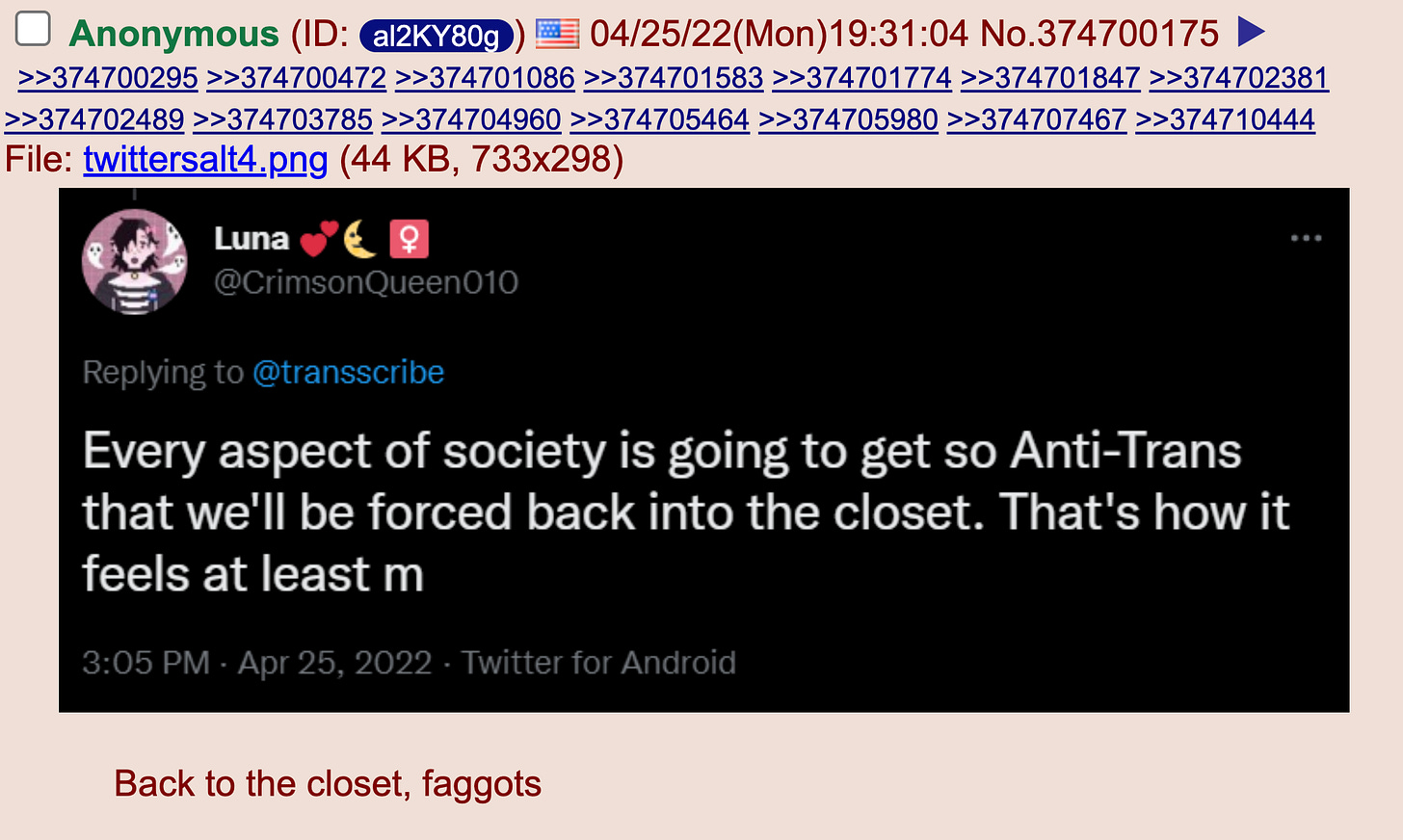No, you don't want complete and total free speech. Trust me.
Have you ever actually seen what happens when platforms become complete and total free-for-alls?
Lately, there’s been a lot of talk about “free speech.” With news that petulant man-child and richest man on the planet Elon Musk is planning to purchase Twitter, take the company private, and turn it into a haven for “free speech.” Sounds good, right? We all love free speech, yeah? Yeah.
So what’s the problem? Well, “free speech,” as a concept and not necessarily as a matter of law, means a lot of different things to a lot of different people. Some people might say that “free speech” means having the ability to share your views without the government getting involved. Others might say that it’s, as the New York Times editorial board would say, the right of people “to speak their minds and voice their opinions in public without fear of being shamed or shunned,” and others… well… let’s try to figure out what Musk is trying to say here.
“That which matches the law.” Ah. I see.
Yes, that is the bare minimum level of content moderation Twitter could impose, correct. In the U.S., that would mean Twitter’s policies would mirror that of the first amendment, which is very broad. “If people want less free speech, they will ask government to pass laws to that effect” doesn’t make sense for those of us in the U.S. given that the first amendment prevents such laws from being made. And I’m not even going to start on how ridiculous the claim that laws represent “the will of the people.”1
What would Twitter with that level of “free speech” look like? I’ve seen some people say things like, “So Twitter would be totally fine with a group setting out to try to convince voters that the election was held on a Wednesday instead of Tuesday?” or “But what about pandemic disinformation?” or “So, looks like it won’t be against the rules to misgender trans people anymore.” Oh, you sweet summer children…
Let’s look at this thread from NBC’s Ben Collins, who spends a lot of his time on extreme right-wing sites and online forums that claim to champion “free speech” above all else.
That tweet was enough for Freddie deBoer to get upset about and write a lengthy post about how Collins supposedly doesn’t understand speech. Other people on the right mocked Collins. But deBoer is wrong. Collins’ whole thread is worth reading, but this tweet really gets at the heart of what complete and total unfettered “free speech” tends to result in when it comes to the internet.
“Fake recipes for play-doh that actually produce napalm.” Yay, free speech, right!?
If you’ve never had a chance to check out the true cesspools of the internet, then you’re missing out (on some of the most horrific content on the face of the planet). Guys like Collins aren’t playing. Things get really gross on the internet in these sites centered on “free speech.” For instance, I spent a bit of time scrolling through 4chan’s “/pol” board this morning. Below is a small sampling of some of the “free speech” that happens over there. It’s really gross, really hateful, and just genuinely an awful experience. Also, since I don’t want to get the newsletter flagged, I’m not including anything from any of the sites worse than 4 chan, not including any of the extremely graphic porn or gore that pops up on some of those boards, etc.
Here is just a sampling of the type of stuff that gets posted over there. Read those posts and tell me if this is what you want Twitter to become. Obvious warning for anti-black, anti-trans, anti-gay, antisemitic content below.
The point I’m making here is that while Musk is certainly welcome to turn Twitter into 4chan, I don’t think people will like it. I mean, some people will really like it, but the rest of us? Not so much.
Content warning below this line:

90% of Americans support requiring universal background checks on all gun purchases, but lobbying has prevented that, the most basic of all common-sense gun regulations, from even getting a vote in the U.S. Senate.














I did not have any idea that the Times editorial board, of all people, said that free speech is the right of people “to speak their minds and voice their opinions in public without fear of being shamed or shunned". That's actually the exact opposite of free speech.
All of us who used the internet pre-2000 should remember what unmoderated forums looked like. It was godawful--a relatively small number of awful people could pretty quickly drive out the "good" users and ruin an otherwise useful forum. It wasn't even that long ago, so I'm not sure why the techbros need to relearn that lesson.